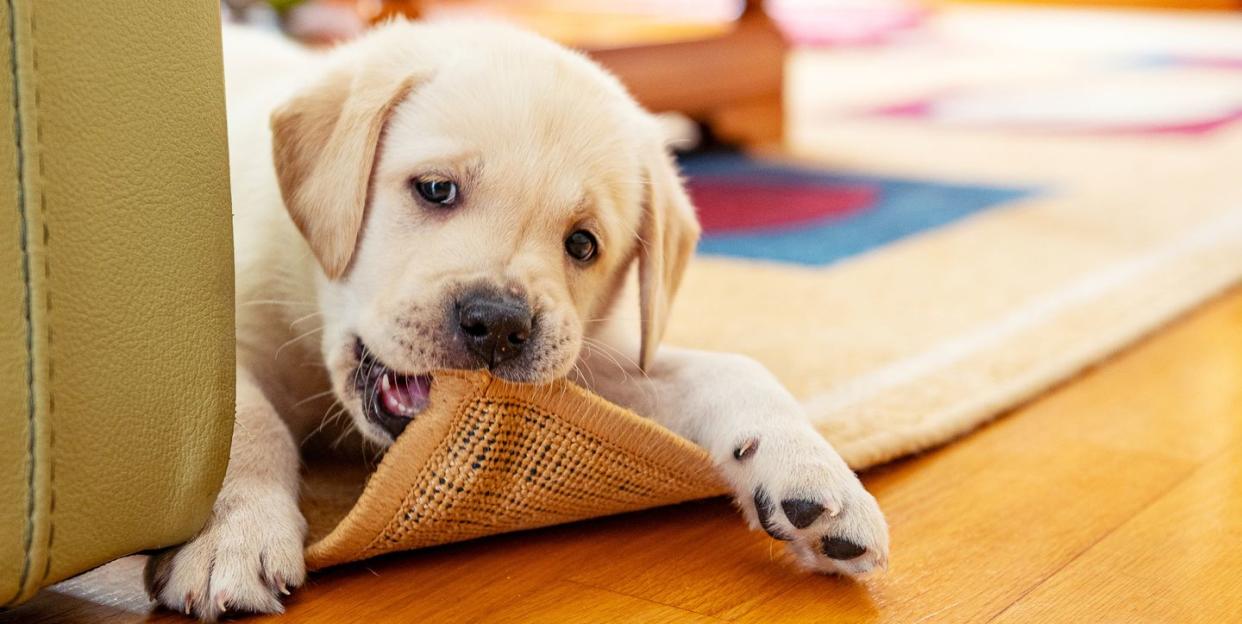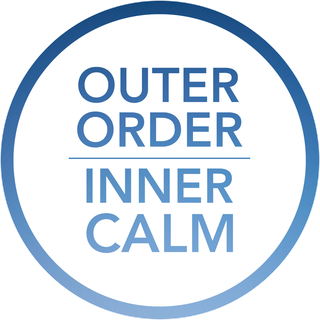Thinking About Getting a Puppy? Here's How To Make Space

Gretchen Rubin is the bestselling author of several books, such as Outer Order, Inner Calm and The Happiness Project, about how to be happier, healthier, and more productive, and she hosts the Happier with Gretchen Rubin podcast. For OprahMag.com, Gretchen is weighing in on how we can all find a little bit of calm, even during a pandemic. This week, she answers a reader question.
I’m single and live alone in a small space, but since the pandemic isn’t going anywhere, I have a feeling this fall and winter will be lonely. I’m considering getting a dog, but I have a lot of clutter in my apartment and I don’t know where to start. How can I keep my most beloved possessions but also make space for a small rambunctious puppy?! —Michelle from New York
First: Congratulations on the decision to get a puppy! Psychologists generally believe that people with dogs tend to be happier. The pets provide companionship and unconditional love, and having one often contributes to stronger relationships with other people as well, by helping you to start conversations with people you might not normally have something in common with. Studies show dog owners also often get more exercise, and exercise boosts our mood and improves our health. And while we think that receiving support is a key to happiness, providing support is also important—and we lavish our attention and care on beloved dogs.

But you’re right: a dog will add a big presence to your small apartment. Not to worry, however; you can make the transition easier by giving yourself more elbow room.
Since you’re having trouble getting started on clutter-clearing, you might benefit from asking a friend or even a professional organizer to help. Sometimes the presence of another person—amateur or professional—can help us focus, stay on task, make tough decisions, and handle the grunt work of tossing, recycling, or donating.
As another starting step, figure out where you will donate items such as books, clothes, and kitchenware that you no longer want. It’s much easier to get rid of things if you know what people or organizations will benefit. You can begin your clutter-clearing by tackling piles of things stored on the floor. If your puppy behaves the way our puppy did, you’re not going to want to keep any items within puppy reach. (I'm still mourning one of my favorite pairs of shoes that was gnawed to pieces.)
As you sort through your belongings, consider whether your clutter is related to memories, such as mementos and souvenirs. If so, remember that the more mementos you keep, the less meaningful each will be—and the bigger the collection, the more trouble it is to store and to look through. Choose wisely, and when possible, choose something small and sturdy instead of something fragile or bulky. One shell from a beach is beautiful; two jars of shells take up much more space. (And what are the odds you’ll never look in the jars?)
Also consider whether some possessions were once important to you, but no longer play a role in your life. If you stopped roller-blading a few years ago, you can get rid of your roller-blades and helmet. If you no longer listen to CDs, watch video tapes, or take photos with a camera, get rid of those items.
In addition, take stock of whether you’ve amassed a larger quantity of an item than you could ever use. For instance, since you live alone, you probably don’t need 10 mugs, 5 saucepans, or 15 tote-bags. Get rid of anything you can’t identify, such as cords, lids, keys, or unidentifiable kitchen implements. I was once baffled by a kitchen item that turned out to be a spiral vegetable cutter; needless to say, I’d never used it.
If something doesn’t work, either fix it, or get rid of it. This sounds obvious, but I find that it’s surprisingly difficult. Note: If you don’t know whether it’s broken—say, you haven’t used that blender in two years—you know you don’t use it, so you can get rid of it.
A final word of caution: as you embark on this adventure, beware of being persuaded to buy too much stuff. With a new experience like getting a puppy, it’s easy to get carried away with purchasing every tool, toy, and gizmo that’s for sale. Instead, purchase only the bare essentials, then wait to see what you and your puppy really need.
Congratulations, and good luck!
For more stories like this, sign up for our newsletter.
You Might Also Like
